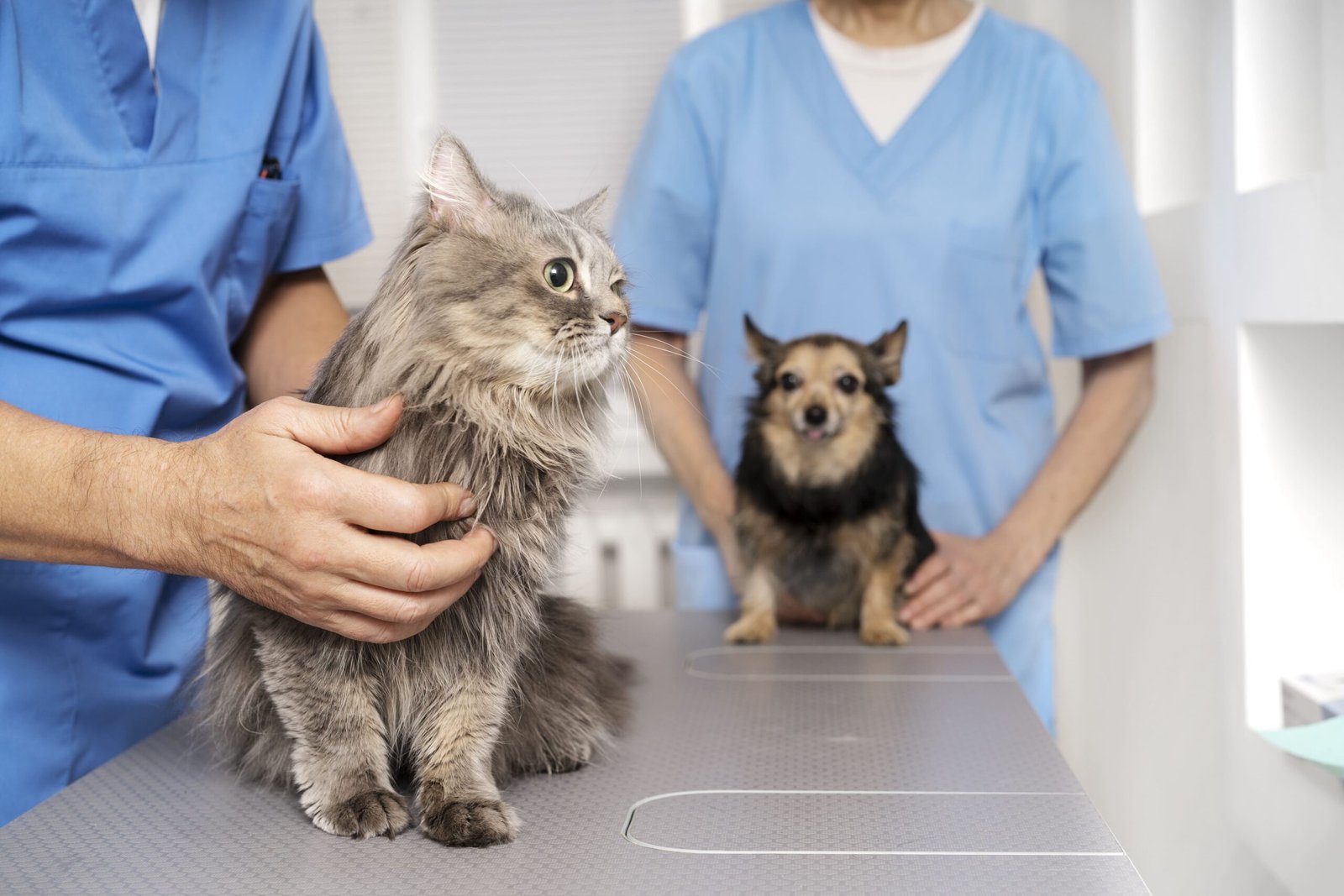
In recent years, more pet owners are exploring holistic veterinary care as a powerful alternative to conventional treatments. But what exactly does holistic care mean, and why is it becoming so popular? Holistic veterinary care looks at your pet’s health as a whole—body, mind, and spirit—offering treatments that complement traditional medicine to boost natural healing and overall wellness. This approach goes beyond just treating symptoms and aims to optimize your furry friend’s health with gentle, natural solutions.
If you’re curious about how natural pet care and integrative veterinary medicine can improve your pet’s life, read on. We’ll dive into the core principles of holistic care, the physical and emotional benefits for pets, the advantages for owners, and how to get started with a holistic vet.
What is Holistic Veterinary Care?
Holistic veterinary care is an approach that considers every aspect of your pet’s well-being, not just the illness or injury. It integrates conventional medicine with complementary therapies like:
- Acupuncture for dogs and cats
- Herbal medicine for pets
- Nutritional counseling and diet adjustments
- Homeopathy and chiropractic care
Unlike traditional vets who may focus mainly on symptom treatment, holistic vets work to identify the root causes of health issues and promote healing through natural means. The goal is to support the pet’s immune system and overall vitality using natural remedies for pets whenever possible.
Core Principles:
- Treat the whole animal (body, mind, emotions)
- Use natural, minimally invasive therapies
- Encourage prevention and long-term wellness
- Individualized treatment plans
Benefits for Pets’ Physical Health:
One of the biggest perks of holistic veterinary care is the positive impact on your pet’s physical health. Here’s how it helps:
Improved Immune System:
Holistic therapies aim to strengthen your pet’s immune system naturally, helping them fight off infections and recover faster. Nutritional support and herbal supplements can boost immune function, reducing the likelihood of chronic illness.
Natural Pain Relief and Inflammation Reduction:
Instead of relying solely on pharmaceutical painkillers, holistic vets use holistic pain management techniques like acupuncture and herbal anti-inflammatories. These treatments often provide effective pain relief with fewer side effects.
Chronic Disease Management:
For pets with conditions like arthritis, diabetes, or allergies, holistic care offers supportive therapies that can improve quality of life. Integrative medicine helps manage symptoms and slows disease progression by combining natural and conventional treatments.
Emotional and Behavioral Benefits:
Holistic care isn’t just about the body — it also addresses your pet’s emotional health.
Stress Reduction Through Alternative Therapies:
Techniques such as acupuncture and massage therapy promote relaxation and reduce stress hormones, which is especially helpful for anxious pets.
Impact on Anxiety and Behavior Problems:
Many behavioral issues stem from underlying physical or emotional imbalances. Holistic vets can design behavioral therapy for pets using natural calming herbs, supplements, or therapies that improve mood and focus.
Enhancing Overall Pet Happiness:
When pets feel physically and emotionally balanced, they’re happier, more energetic, and more engaged with their families. Holistic care encourages this full-spectrum well-being.
Benefits for Pet Owners:
Choosing holistic veterinary care also benefits you as a pet parent:
- Stronger Connection: You become more involved in your pet’s health journey through personalized care plans and education.
- Less Reliance on Medications: Natural treatments often reduce the need for harsh pharmaceuticals with unwanted side effects.
- Long-Term Cost Benefits: While some holistic treatments might seem costly upfront, managing chronic diseases naturally can lower overall veterinary bills over time.
What to Expect When Choosing Holistic Vet Care?
If you’re ready to explore holistic options, here’s what to expect:
Finding a Certified Holistic Vet
Look for vets certified by organizations like the American Holistic Veterinary Medical Association (AHVMA). These vets have specialized training in complementary veterinary therapies.
Typical Treatments and Visit Structure:
Appointments may include detailed health history, physical exams, and recommendations for therapies such as acupuncture, herbal supplements, or diet changes. Follow-ups focus on monitoring progress and adjusting treatments.
Integrating Holistic Care with Conventional Medicine:
Holistic care doesn’t reject traditional medicine; instead, it works alongside it. For example, surgery or antibiotics may be necessary in emergencies, while holistic methods support recovery and prevent future problems.
الخاتمة
Holistic veterinary care offers a fresh, compassionate approach to your pet’s health—one that treats the whole animal and promotes lasting wellness. From boosting the immune system and managing pain to improving behavior and reducing stress, the benefits are wide-ranging. Plus, pet owners get more peace of mind and connection with their furry companions.
If you want to give your pet the gift of natural, well-rounded care, consider consulting a certified holistic vet today. Your pet’s health and happiness could thank you for it!
(FAQ):
Q1: Is holistic veterinary care safe for all pets?
A: Yes, holistic care uses natural, gentle treatments tailored to your pet’s specific needs. Always consult a certified holistic vet to ensure safety.
Q2: How is acupuncture performed on pets?
A: A trained holistic vet uses fine needles placed at specific points to stimulate healing and relieve pain. It’s usually painless and well-tolerated by pets.
Q3: Can holistic care replace traditional vet visits?
A: Holistic care complements, rather than replaces, conventional medicine. Both approaches can work together for the best outcomes.
Q4: What are some common herbal medicines for pets?
A: Herbs like turmeric, milk thistle, and chamomile are popular for their anti-inflammatory and calming effects but should only be given under vet guidance.
Q5: How long does it take to see results from holistic treatments?
A: It varies by pet and condition; some see improvements quickly, while chronic issues may require ongoing care.

